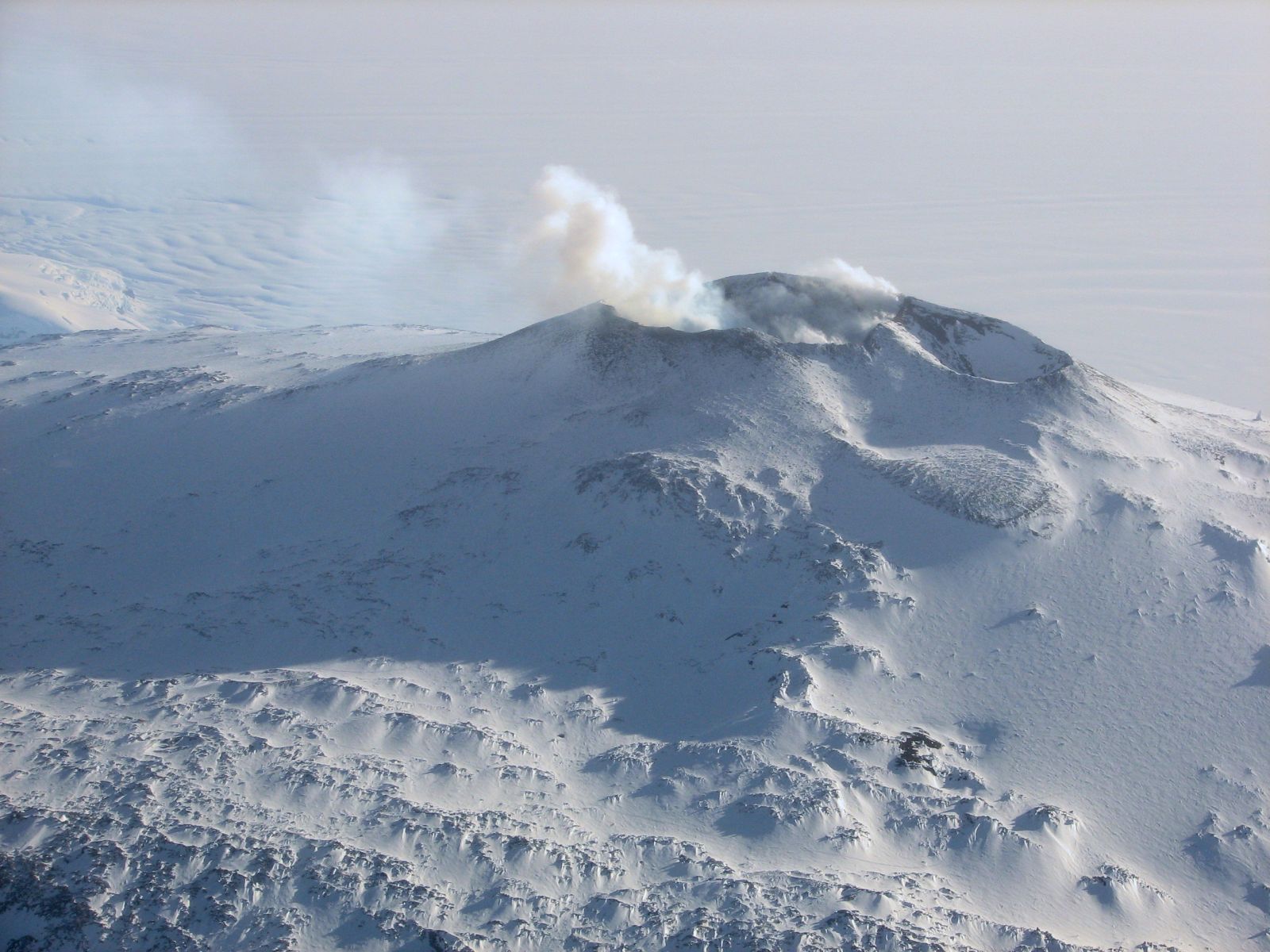Follow us on Google News (click on ☆)
Beneath the immense West Antarctic Ice Sheet lies the planet's largest volcanic region, home to up to 138 volcanoes. Among them, 91 were discovered during a 2017 study published in the journal Geological Society. This finding raises an intriguing question: could these volcanoes erupt on Earth's southernmost continent?
Currently, only two volcanoes are considered active in Antarctica: Deception Island, a horseshoe-shaped mass of land to the north of the main continent part of the South Shetland Islands, and Mount Erebus, the continent's highest point with a summit at 12,448 feet (3794 meters). The latter, towering over McMurdo Station on Ross Island, has been continuously erupting since at least 1972. It is known for its gas and steam plumes and Strombolian eruptions that occasionally throw "bombs" of rock.
A particularly remarkable feature of Mount Erebus is its persistent lava lake, a rarity requiring specific conditions to keep the surface molten. Deception Island, on the other hand, last erupted in 1970 and is closely monitored by scientists, though no eruption is currently anticipated.
Despite there being only two known active volcanoes on the continent, Antarctica is full of fumaroles, volcanic vents releasing gas into the air. These emissions can lead to the formation of fumarolic ice towers up to 10 feet high.
Monitoring these volcanoes is complex. Scientists use instruments, including seismometers to detect seismic activity related to volcanic unrest. However, logistical challenges and extreme conditions make it difficult to install and maintain these instruments.
Although the presence of active volcanoes and fumaroles in Antarctica is well documented, predicting the next eruption remains a challenge for scientists. Their work is essential to understanding not only the volcanic activity of this isolated continent but also its impact on the global environment.
